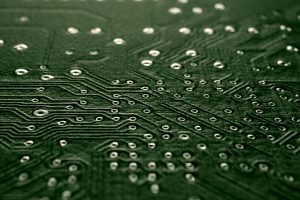Last year, U.S. Secretary of Defense Mark Esper warned that China is perpetrating “the greatest intellectual property theft in human history.” The Commission on the Theft of American Intellectual Property estimated that Chinese intellectual property theft costs the United States $600 billion annually. Despite that, when the world votes for the next leader of the World Intellectual Property Organization (WIPO) on March 4-5, the winner could very possibly be China’s candidate.
If that happens, the new Chinese leader would assume a leading role in protecting the world’s intellectual property while simultaneously representing a country considered to be the leading perpetrator of intellectual property theft. Much of this activity occurs in cyberspace, where China compromises information networks to access and exfiltrate U.S. trade secrets and other proprietary information. Leadership of WIPO would allow Beijing to set the agenda for how the organization protects — or fails to protect — the innovations that drive economic growth.
The World Intellectual Property Organization is not alone in this trend. China is positioning itself for — and winning — leadership in a broad array of international bodies. It leads four of 15 different U.N. specialized agencies, including the International Civil Aviation Organization, the U.N. Industrial Development Organization, the Food and Agriculture Organization, and the International Telecommunication Union. WIPO could be the fifth. Many of the issues that these agencies grapple with have a direct impact on U.S. national security, but the consequences for cyberspace are especially dire. Through bodies like the International Telecommunications Union, China is leading the conversations that shape the fundamentals of technology and the internet.
As members of the U.S. Cyberspace Solarium Commission, we have examined this issue and developed recommendations that will protect Americans’ digital lives by preventing cyber incidents of significant consequence. A constant theme throughout this work has been the critical importance of taking an active role at the international organizations that shape the world around us. Setting global baselines on topics like establishing security protocols for emerging 5G technology, enforcing norms of responsible state behavior in cyberspace, or safeguarding intellectual property and rewarding innovation, requires a great deal of time and effort. Historically, our technologists and diplomats have worked closely with these bodies, ensuring that international standards align with our vision of an open, interoperable, reliable and secure internet that fosters the exchange of ideas and fair economic competition. However, over the past decade, the United States has let this momentum stagnate, and our adversaries — particularly Russia and China — have eagerly filled the void.
The United States must step back up to the plate and advocate for the technologies and policies that underpin fair competition and the free and secure exchange of ideas online. The U.S. cannot expect that our values and priorities will continue to prevail in cyberspace while our adversaries are making massive investments of time and resources to build support among the international community that far outpace our own.
The authoritarian nature of our adversaries can, ironically, make them more nimble in these fora. After all, when the state owns the industry, there’s not a lot of daylight between their positions. However, the authoritarian approach also stifles the innovation economy that draws the world’s best and brightest to America to get educated and start businesses here.
We believe that, with a strategic government approach, we can leverage the immense talent of our private sector to promote American values in cyberspace. To that end, the Cyberspace Solarium Commission will recommend that the United States must be more proactive in how we approach international bodies, which requires restructuring and better resourcing our government engagement with multilateral institutions. To support this, the Commission recommends the creation of a Bureau of Cyberspace Security and Emerging Technologies within the U.S. Department of State, led by an Assistant Secretary of State. We also recommend greater government and private sector engagement in standards setting bodies and better resourcing for organizations coordinating and supporting standards development like the National Institute for Standards and Technology. Whether on intellectual property or internet protocols, these recommendations will better coordinate U.S. government and private sector engagement in international fora, while garnering support from international partners and allies to amplify our shared values.
Technological advances, enabled by intellectual property protections, have driven the creation of the internet and fundamentally changed our world. We believe that an open, interoperable, reliable and secure internet benefits us all. The U.S. government must lead the way in engaging in international arenas to keep this vision a reality.
Mike Gallagher (R-Wisconsin) and Jim Langevin (D-Rhode Island) are U.S. representatives.

































